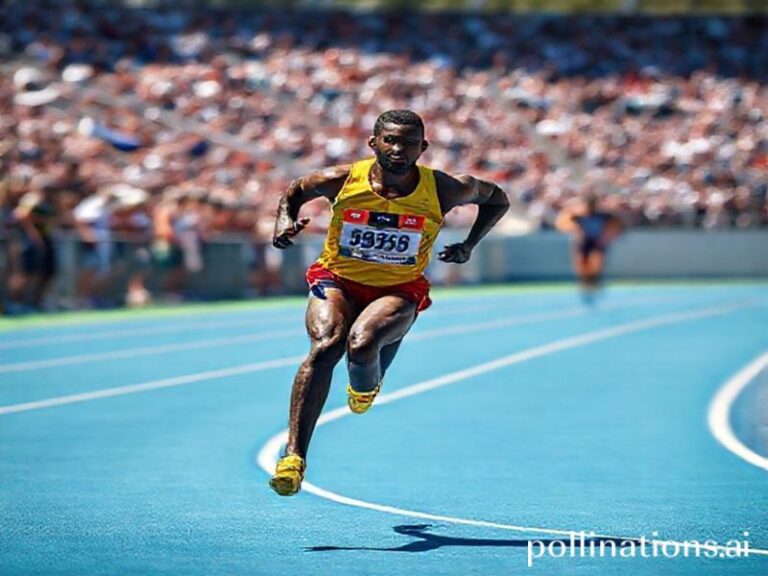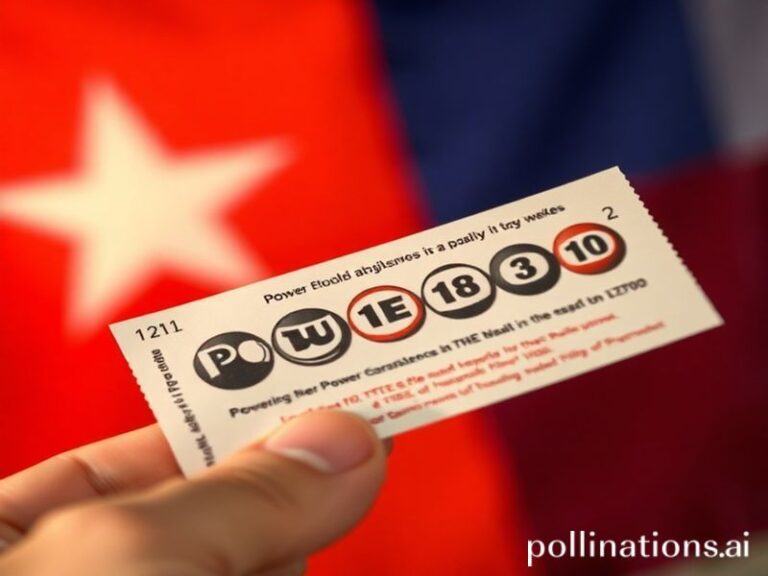Sonay Kartal’s Wimbledon Run: How a British Teenager Briefly Convinced the World It Wasn’t Doomed
Sonay Kartal: When a British Teenager Turns Wimbledon into a Global Metaphor for Collapse
By the time you finish this sentence, another geopolitical crisis will have erupted somewhere, TikTok will have minted a new deity, and your crypto portfolio will have dropped another 12 percent. Yet for one delirious July afternoon, the planet pressed pause on its scheduled apocalypse to watch a 22-year-old from Beckenham named Sonay Kartal attempt to make the Wimbledon quarter-finals. The match itself—a straight-sets defeat to Elena Rybakina—was less important than what it signified: a rare moment when the world remembered it could still manufacture hope on an industrial scale, even if the warehouse is on fire.
Kartal’s run was the sporting equivalent of discovering an unopened bottle of 1996 Château d’Yquem in the rubble of a bombed-out wine cellar. Ranked 298th at the start of the grass-court season, she had spent most of the year grinding through ITF tournaments in places whose souvenir T-shirts read “I survived the $25K Nonthaburi.” Then, like a pop-up ad you actually click on, she found herself on Centre Court, trading forehands with a former champion while global television networks tried to pronounce “Beckenham” without sounding like they were ordering at a Turkish restaurant.
The international significance is almost too tidy. Britain—an island nation that recently voted to make itself poorer out of sheer nostalgia—has been searching for a post-Brexit identity that doesn’t involve queuing in the rain. Kartal provided a convenient narrative: plucky underdog armed only with a Babolat and a British passport conquers foreign invaders. Never mind that her surname sounds more Anatolian than afternoon tea; the tabloids swiftly rebranded her as “Kent’s Own,” proof that immigration works as long as the immigrants win tiebreaks.
Across the Atlantic, ESPN cut away from congressional footage of octogenarians arguing about who misplaced the nuclear codes to beam Kartal’s third-round upset of Madison Keys into American living rooms. Viewers were informed that Beckenham is “near London,” which is geographically accurate in the same way that Cleveland is “near Toronto.” Still, the match drew a respectable 1.7 million U.S. viewers—roughly the same number who believe the Earth is flat, but with better demographics.
In Turkey, where “kartal” means “eagle,” newspapers ran headlines like “The Eagle Has Landed in London,” conveniently ignoring that her family hails from Bulgaria and she self-identifies as “just a south-London girl.” The Turkish Tennis Federation, sensing a branding opportunity, offered her a wildcard into Istanbul. She politely declined, citing “scheduling conflicts,” which is athlete-speak for “I have Google Translate.”
China’s state broadcaster, meanwhile, used Kartal’s run as evidence that Western individualism leads to emotional volatility—Rybakina’s victory apparently showcased the superior Kazakhstani collective spirit. No one pointed out that Rybakina actually represents Kazakhstan because Russia couldn’t afford her anymore, but geopolitical consistency is so 20th century.
The broader significance lies in Kartal’s ranking trajectory. In a week, she jumped from 298 to 148, which in tennis terms is like being promoted from intern to CEO because you made decent coffee once. The WTA’s algorithm is a beautiful absurdity: lose early, and you plummet; lose late, and you’re a hero. It’s the same logic that made your cousin a crypto millionaire for six minutes in 2021.
And yet, for 72 hours, the usual doomscrolling gave way to something perilously close to optimism. Bookies slashed her odds faster than a cabinet minister deletes old tweets. Hashtags trended. Brands queued. Even Novak Djokovic paused his gluten-free monologue to say, “She reminds me of me, but with better Instagram.” Then Rybakina delivered the inevitable reality check, and the planet exhaled, relieved to return to its regularly scheduled catastrophe.
Kartal left Wimbledon £226,000 richer, which in London buys you a studio flat and a Pret subscription. She also left with the knowledge that next year she’ll be expected to do it again, only better, while the world watches to see if hope can be mass-produced on demand. Spoiler: it can’t. But for one fleeting fortnight, a kid from Beckenham made the globe forget it was on fire. And in 2024, that’s the closest thing we have to a miracle.







